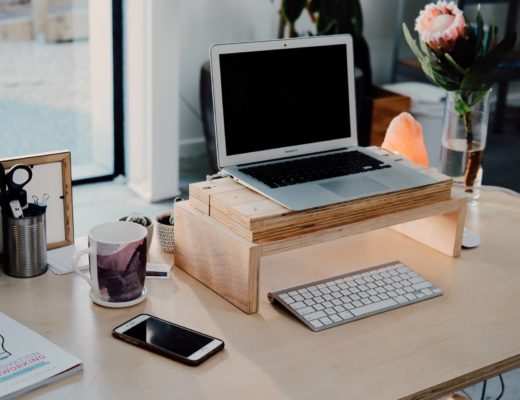Listening effectively is a skill.
It sounds so easy. We do it every day – or so we think. As it happens, really listening is more challenging than it appears. Most times, we’re otherwise engaged, holding onto our phones for dear life while simultaneously scrolling through Instagram. We seem to think that being in the same room or on the other end of the line is enough. At other times, we’re too busy thinking about how to turn the conversation back to ourselves, making it all about us rather than the other person.
In my last job as a fitness instructor, I supported people with more than their physical fitness. I helped them to achieve a healthier, balanced lifestyle, and they confided in me about things they were finding difficult. I listened to tales of miscarriage and divorce, eating disorders and affairs, grief, and exercise addiction. Overall, I think I did a pretty good job.
But it wasn’t until I started training for my Level 2 Certificate in Counselling Skills that I learned how to listen. The people who trusted me with their mental health were the ones I took the training for. The people who called me into the tiny gym office to offload their troubles because they didn’t know where else to turn – I wanted to be better equipped to support them.
If you want to learn how to do the same for those around you and brush up on your listening skills, keep reading.
Pay attention and listen
When a friend, family member or work colleague comes to you with a problem, they don’t always want advice. They want someone to listen – to hold space, to connect with them and make them feel heard. Having someone to offload to might be all they need.
It’s too easy to think that just being in the same room is enough. If you’re not fully paying attention, you can leave someone feeling misheard, misunderstood, or rejected. If someone comes to you to talk, provide a safe space for them. Find somewhere quiet where you won’t be disturbed. Put your phone down; go crazy and switch it to silent – give them the time they need to discuss whatever is troubling them. It might have taken a lot of courage for them to come to you, so the least you can do is give them your undivided attention.
There’s more than one way to listen, but until I started my course, I didn’t realise. More importantly, I learnt that to use any of the following techniques, I had to pay attention.
Active Listening
Active listening is about making someone feel heard and understood. It’s an effective technique practised in a helping, counselling, or coaching capacity. It requires paying attention and listening without swiping through Tinder or shopping on Amazon. Active listening is a skill that will serve you well in both your personal and professional life. It’s a skill that shows you’re interested in what someone is saying and responding appropriately.
Minimal Encouragers
Minimal encouragers are a simple but effective way of applying your active listening skills. They are non-verbal communications or short phrases which still show the other person you’re listening to them. You can give a simple nod, make an ‘uh-huh’ sound, or even say the occasional yes, no, I understand, or that sounds difficult/overwhelming/challenging (please delete as appropriate).
You don’t want to give yourself whiplash by manically waving your head all over the show just for the sake of it. That’s why you must listen effectively to the other person.
Notice the body language of the person you’re listening to and look for cues on how best to respond. How do they sound? Do they appear upbeat, emotional, sad, or angry? Notice their facial expressions. You don’t want to smile inappropriately because you’ve not been paying attention.
Reflecting, paraphrasing, and clarification
Reflecting means using the other person’s words: I told him I couldn’t do it anymore; I’d had enough.
You told him you couldn’t do it anymore.
Paraphrasing is using your own words. They need to mean the same as what you heard, but you’re using your own words to paraphrase what you were told: You’re fed up and you can’t keep doing it.
You can also use clarification to confirm you’ve understood what the other person has said. When someone is upset, it’s easy for them to get muddled up and jump from one topic to another, leaving the listener confused. Clarification is a way to make sure you’re following the conversation correctly. You can ask the person what they meant or tell them what you think you heard. What do you mean by you can’t do it anymore? When you told him you couldn’t do it anymore, do you mean you’ve decided to leave him?
You can also summarise the whole conversation if you want. This lets the other person know you’ve heard and understood everything. It’s like paraphrasing, but you’re summarising the whole talk – it’s a condensed-down version of everything that’s been said.

Don’t give advice unless specifically asked
This can be hard, especially when listening to a friend or family member. Our natural instinct is to give advice and try to fix everything.
But people aren’t always looking for answers; they need to talk and feel heard. They want to get things off their chest by voicing whatever is troubling them. You’re not counselling them, but you are using practical counselling skills. For the Level 2 Certificate in Counselling Skills, people are referred to as helpers because that’s what you learn to do – help people – whether that’s in the workplace or at home.
The crucial thing with both helpers and counsellors is they’re qualified to listen, not to give advice or opinions. This can be a grey area with friends and family, but it might be best to avoid giving advice or your opinion unless specifically asked. With work colleagues, it’s easier to distance ourselves and listen rather than try to offer a solution.
If you’re unsure about the desired outcome someone wants, ask them directly: What would you like me to do? Do you want me to listen, or do you want my advice/opinion? Most often, when people talk about what’s worrying them, they reach their own conclusions about how to deal with the problem.
Listening and asking questions
Sometimes, you might need to ask a few questions. If you want to help someone gain a different perspective on their problem, encourage them to think about it in another way. The best way to do this is to ask open questions instead of closed ones.
Closed questions are good for gathering information because they only require a yes, no, or a one-word answer. Are you okay with that? Have you got your key back? Open questions allow the other person to explore how they’re feeling. How does that make you feel? What happened when you asked for your key back?
One more important thing to remember is to listen without interrupting. Let the other person finish what they’re saying before asking any questions.
Listening to someone else is about them, not you
More importantly, if someone comes to you to talk, remember it’s about them, not you. If you start regaling stories about a time when something similar happened to you, then the conversation becomes about you.
Everyone has moments when life doesn’t go according to plan, and we need time to pause and reflect. Some people get drunk and drown their sorrows; others shut themselves away, some people seek professional help. If you find yourself in a position where someone needs to talk and they want you to listen, just be kind and hold space. Stop what you’re doing, put your phone down and give that person your undivided attention. One day, roles might be reversed, and if they are, you’ll fully appreciate the skill of listening.
Professional support
If you or someone you know needs professional support, please see the following websites for information. Visit the charity Mind for general advice or the BACP or Counselling Directory to find a qualified counsellor in your area. You can also visit the NHS to find a list of charities or find urgent support here.
How are you at listening? Do you always want to give advice and try to fix things, or are you happy to just be there and listen?
I hope this post has been helpful. If so, please share it with someone you think might benefit from it.






No Comments